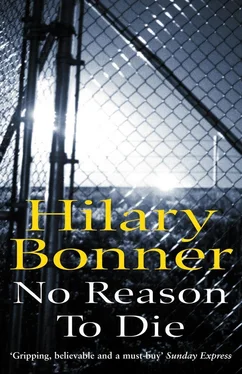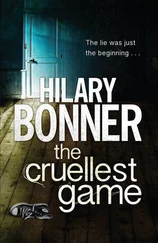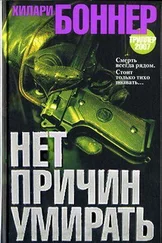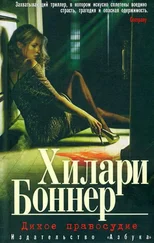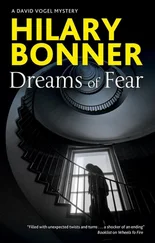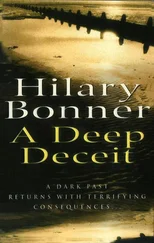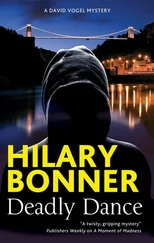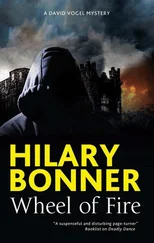‘I met your wife,’ she told him quietly.
‘Ah,’ he said. She waited to see if he would make any further comment. He didn’t.
‘Why?’ she asked.
He understood what she meant at once.
‘I didn’t think you’d have anything to do with me if you thought I was married.’
He could have no idea, of course, how ironic she found that remark. He didn’t know about Phil Cooper. Married men, unfortunately, had not always been off her agenda. Congenital liars were.
‘You’re a grade A bastard in every direction of life, Gerry,’ she told him, her eyes blazing with anger. ‘And I am going to get you, I promise.’
He said nothing, but she thought there may have been the merest flicker of concern in those strangely feminine brown eyes. And with this man, she thought, as she turned away from him again, even that was a result.
Kelly stayed in the armchair in the window for the rest of that day and the whole of the night, going over and over everything in his mind.
There had been a total of six sudden deaths of young soldiers stationed at Hangridge: Trevor Parsons, Jocelyn Slade, Craig Foster, James Gates, Alan Connelly and Robert Morgan.
Parsons’ death, it seemed, could well have been a genuine suicide after all. Jocelyn Slade and Craig Foster had, according to Nick, both been murdered by the monstrous and mysterious Irishman. James Gates’ death remained unexplained, although Kelly strongly suspected he had been murdered too, probably on the instructions of Parker-Brown. Connelly had almost certainly been dispatched by the Irishman and Parker-Brown. And Nick’s silence when his father had accused him of killing Morgan made Kelly quite certain that he was guilty of that final murder.
It was mind-blowing. Kelly felt sick. He sat staring into space, desperately trying to come to terms with it all. The phone rang several more times but he continued to ignore it.
He did not sleep properly all night, only occasionally dozing fitfully.
In the morning, still feeling nauseous, he decided to check his messages, even though it was highly unlikely that he would do anything about them.
There were several from Margaret Slade.
‘John, things are really starting to happen. We’re planning to do our bit, too, just to make sure this investigation doesn’t get swept under the carpet as well. We’re going to march on parliament at the end of the week and we want to publicise that. We also want to announce that we are calling for a full public inquiry. The papers already know there’s something up. People talk, don’t they? Neil Connelly has apparently told his local rag in Scotland that he now thinks his son was murdered and that he might not be the only one. I’ve had the Sun , the Mail , the Mirror and the Guardian on to me already and so far I’ve stalled, because I need to know what you are planning. Please call me.’
‘John, where are you? I think I’ve now had every paper in the country on the phone. They’re all champing at the bit. John, it has to be time to make our move.’
‘John. Please call me.’
‘John. If I don’t hear from you tonight, I’m going to try to handle everything myself. I’m going to have to start giving interviews.’
Kelly stared blankly at the machine. He knew he should call Margaret Slade back. She didn’t deserve to be suddenly abandoned. He just didn’t feel able to do so. He couldn’t tell her any of what he had learned. Not yet. But worse than that, unless he did something, unless he did tell Karen Meadows all that Nick had told him, unless he shopped his only son, he had a dreadful feeling the truth was never going to come out — even if the families did force a public inquiry.
There were also several messages from Karen Meadows.
‘I do hope you’re there, Kelly. I heard from uniform that you did a disappearing act. Will you please pick up the phone. I still need you on the case. You’d never believe the wall that the army are building round this little lot. One thing is certain, this investigation is only just beginning.’
The final call was from Jennifer.
‘I’ve also left a message on your mobile, John. I thought you were planning to come over? I’ve got some news.’
He switched off the answering machine, pulled the telephone socket out of the wall, and sat staring into space for several minutes. Eventually, he went up to the bathroom and removed the packet of Nurofen he always kept in the cabinet. Then he went downstairs and raided the cupboard in the kitchen, where he kept the rest of whatever other medical supplies he had. There was some paracetamol, some more Nurofen, and, best of all, a three-quarters-full bottle of sleeping pills that had been prescribed for Moira when she had first begun to feel ill. And the remains of the blockbuster painkillers, which the police doctor had supplied him with, were still in his jacket pocket. He piled the lot of them into the wicker basket on the worktop which Moira had used for bread. Then he went to the other cupboard in the kitchen, which served as a bar. Kelly knew that an alcoholic who can only refrain from drinking by avoiding all contact with alcohol was unlikely to succeed in his aim, and he had, so far at least, not been tempted to start drinking again simply because he kept alcohol in the house. He had always felt that visitors to his home should not be deprived of alcohol, just because he was no longer able to drink without destroying himself. He rummaged through the contents of the cupboard and at the back found an unopened bottle of Glenmorangie, which, ironically enough, was Nick’s favourite malt whisky. And when Kelly had been a drinker, it had been his favourite too.
He took the bottle from the cupboard, found a suitable glass, picked up the little basket of pills and headed for the living room. He switched the radio on. Something by Mozart, he was sure, though he didn’t know quite what it was, was being played on Classic FM. He turned the radio up as loud as it would go. He didn’t want to be able to hear himself think.
He drew the curtains on the bay window that overlooked the street, and sat down in his favourite armchair, leaning back, trying to relax. For the second time in three days, he prepared to die. But this time it would be by his own hand.
There was a pen and a notepad on the table by his chair, and for a moment he considered writing some kind of letter. But he had absolutely nothing to say. And for the first time in his life, just as he was about to end it, Kelly understood why only twenty-five per cent of suicides leave a note, a statistic he had always previously thought surprising.
For a few minutes more he let the music wash over him, hoping that it might help to numb all of his other senses. Then he sat upright in his chair, opened the bottle of Glenmorangie and began to pour the whisky into the glass tumbler alongside it on the table. He filled the tumbler to the brim. Then he took the bottle which contained Moira’s sleeping pills, emptied the pills into his hand and counted them. There were twenty of them, surely enough to do the job. He glanced at the other packets of medication on the table. He thought he might take the paracetamol as well, just to make sure, but decided to begin with the sleeping pills.
He put two in his mouth, picked up the glass and prepared to drink a big mouthful of the whisky to wash them down.
Then the doorbell rang. Instinctively, Kelly put the whisky glass down. Then he picked it up again. It didn’t make any difference who was at the front door, he told himself. In any case, it was probably his police watchdogs, and he certainly didn’t want to be confronted by them. He would just carry on with what he had planned. He could think of no reason at all why he should want to remain in this world.
Читать дальше
